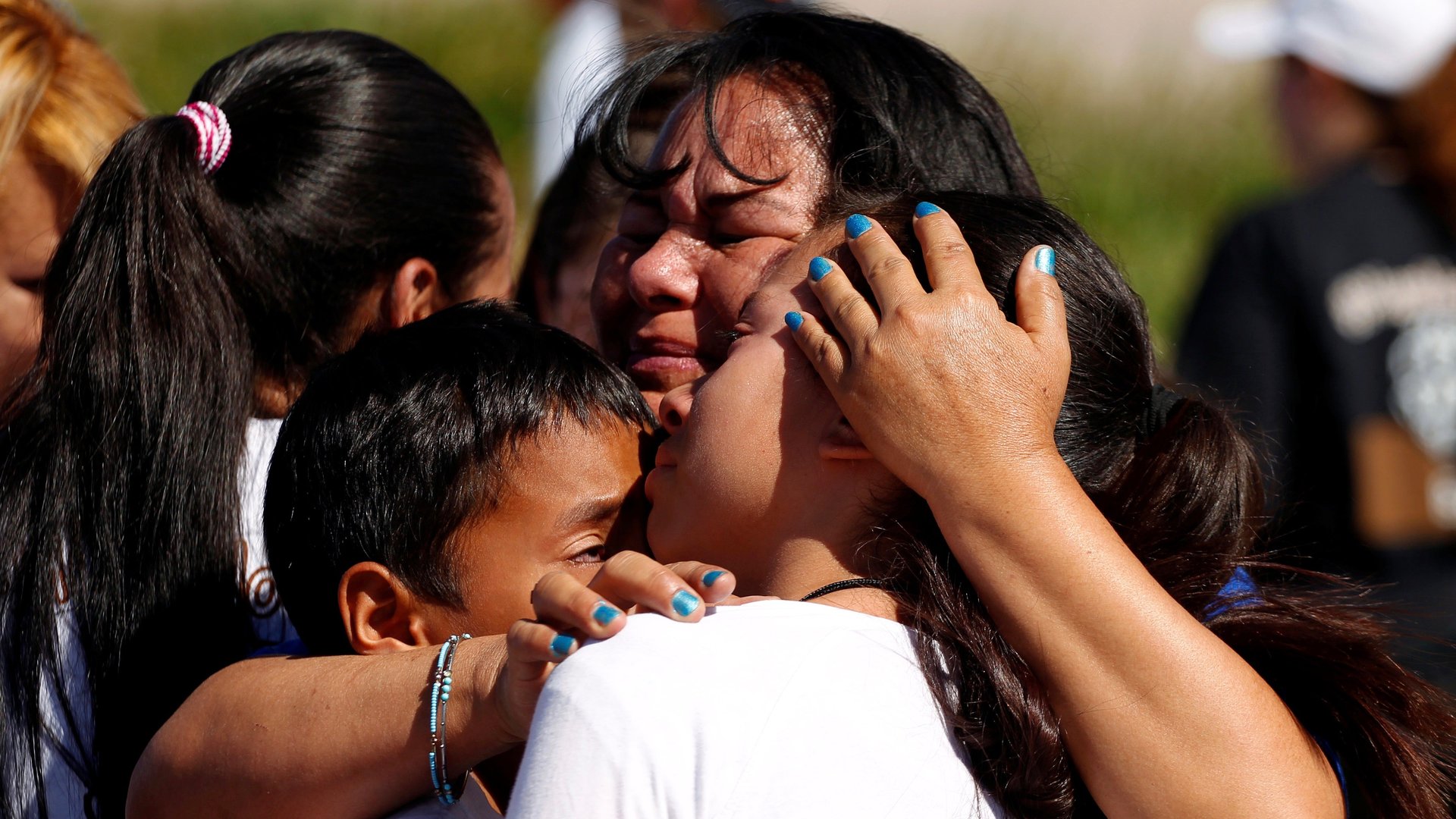The problem with the narrative about 1,500 children “lost” by US immigration authorities
It certainly sounds bad. The US government has lost track of 1,475 undocumented immigrant children; an official admitted as much during a Senate committee hearing last month. Fairly, that admission has spurred widespread demand for more agency accountability.


It certainly sounds bad. The US government has lost track of 1,475 undocumented immigrant children; an official admitted as much during a Senate committee hearing last month. Fairly, that admission has spurred widespread demand for more agency accountability.
The problem, as the Washington Post notes (paywall), is that many of those missing kids may well be with their parents or families, and they may have gone off the grid deliberately to avoid Immigration and Customs Enforcement (ICE) authorities. Tracking them down could end up endangering more children and families.
The “1,500 children” figure, now in wide circulation, comes from an official with the Department of Health and Human Services’ Office of Refugee Resettlement (ORR), who testified last month about children who had arrived at the Mexico-US border without parents and were transferred into ORR custody. In a survey of 7,635 children ORR had placed with adult sponsors, contacted by the agency between October and December of last year, 6,075 were still living with their sponsors, 28 had run away, five had been deported, and 52 were living with someone else. The rest—1,475—were missing.
There are four levels of sponsors, according to ORR policy, beginning with parents, then siblings and close relatives, then distant relatives or unrelated adults, and finally willing strangers or agencies. Potential sponsors, once identified, must apply for unification with the child and provide evidence of a relationship. If the applicant is approved, the child is released. The ORR tries not to hold kids extensively, and data from 2015 show that children spent an average of 34 days in custody before joining a sponsor.
Once a child joins a sponsor, the ORR relinquishes responsibility—that’s what has people up in arms now. The sponsorship agreement essentially leaves it up to the child and their sponsors to show up for further immigration proceedings.
That’s not great. But demands to crack down on ORR release policies could make things worse for the kids who disappeared, and for those who will continue to arrive alone at the border. Asking ORR to be more strict about releasing undocumented kids, and keeping an eye on them after they are released, could make it harder for sponsors to step up and take in their family members. It could also incentivize more disappearances for those who do, forcing more families to exist underground to avoid authorities.
Although there are concerns that some undocumented children are trafficked or abused, the ORR claims (paywall) that 85% of kids are placed in the custody of family members.
Knee-jerk indignation also plays straight into the hands of an administration eager to hunt down and prosecute undocumented immigrants, as lawyer and reporter Josie Duffy Rice, of the Fair Justice Project, points out on Twitter. Duffy argues that outrage over the missing kids is based on confusion and misinterpretation, and “could SERIOUSLY threaten the children” people are trying to save.
The story of the 1,500 missing children, Duffy notes, is being conflated with news that border patrol agents are increasingly splitting parents and kids who arrive in the US together, leading to extensive and traumatic separations. That’s a different issue: The “missing” kids showed up at the border alone. Confusing the two circumstances, and demanding an ORR crackdown, only jeopardizes the safety of the most vulnerable undocumented immigrants and could lead to more family separations, prosecutions by ICE, and deportations.